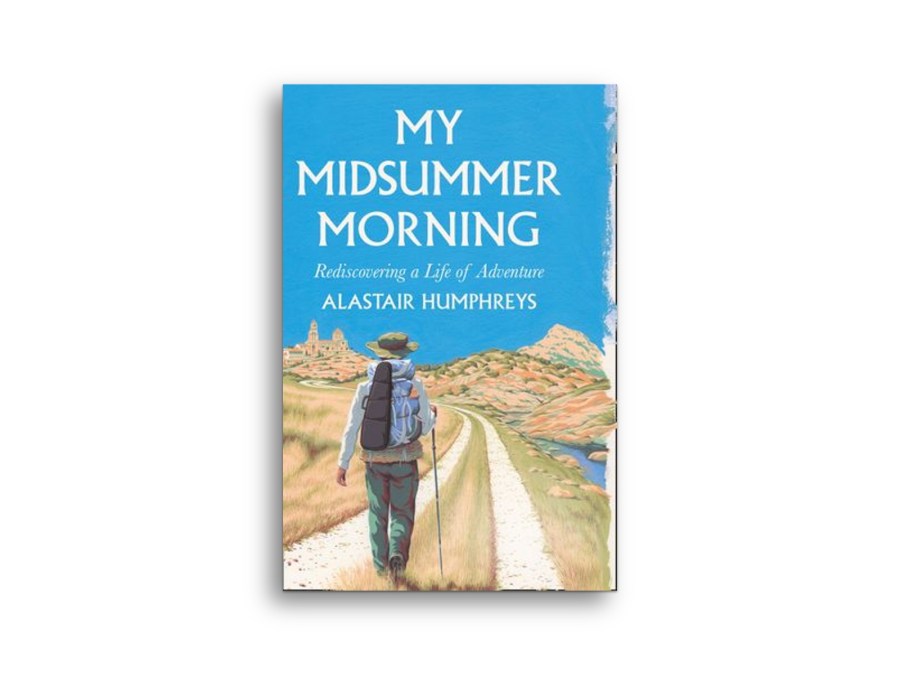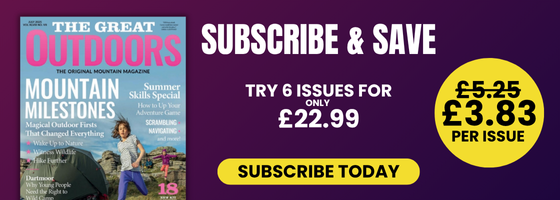Alex Roddie reviews a compelling book about a very different kind of adventure.
Alastair Humphreys made a name for himself by taking on big, impressive journeys such as cycling around the world. But more recently he faced the most daunting adventure of all: fatherhood. How does a restless, wandering spirit who is always looking forward to the next expedition find contentment in life as a parent? Must his definition of adventure change if room is to be found for it in this new chapter of his life? These are the questions Alastair Humphreys grapples with in My Midsummer Morning.
At face value, this is an entertaining story about hiking through Spain with zero budget and only a violin – which Humphreys can barely play – to help him earn a crust. It’s a journey in the spirit of Laurie Lee, a young Englishman who busked through Spain in 1935 and wrote a book about the experience, As I Walked Out One Midsummer Morning. This book becomes Humphreys’ bible, and he frequently asks himself what Laurie Lee would do when faced with difficult situations. Humphreys takes his self-imposed poverty seriously. He often goes hungry when he fails to earn enough from his atrocious scraping and squawking, and by the end of the trip he describes himself as a filthy tramp. But the author is highly conscious of the fact that many of the poorer people he meets in rural Spain have no choice, and that ultimately his poverty has a defined endpoint: when he reaches Madrid.
Alastair Humphreys completes this journey to find out who he really is. His earlier years as a nomadic traveller, he’d come to realise, were no longer compatible with his new life as a father, and he’d noticed himself becoming bitter and resentful, feeling caged. He was also increasingly aware that ambitious trips to wild and remote places no longer challenged him in the same way; he knew how to do that stuff, and it had become his comfort zone. So he picked an objective that terrified him: busking for his daily bread. This would push him far beyond his comfort zone, yet a month walking in Spain would be much more compatible with family life than an Antarctic expedition, and he hoped it would provide him with the opportunity to come up with some answers.
The quest through Spain with a violin, mirroring Laurie Lee’s journey, is tremendously rewarding. Humphreys fails hard and often in his attempts to earn money with his violin and a few simple tunes he can just about play, but there are plenty of triumphs too. For me, this is more compelling reading than another book about some daring expedition – it’s honest and human, and it requires a completely different kind of courage. As a challenge it may sound slightly contrived, but aren’t all adventures contrived when you get down to it? The constraints of any personal challenge must be, by definition, personal.
The author’s inner journey is just as compelling. Without giving away too much, it’s clear that in Spain Humphreys finds the perspective he’s been looking for on adventure, life and family. “Since settling down to family life I had lost my identity and washed up lonely and empty,” he writes. “The years I spent trying to outride and outsuffer everyone, charging madly at the world, were not a good model for the next 40 years.” But by the end of the book, he had found a new truth: “For too long, I had thought adventure was life. But, actually, life is the adventure.”
My Midsummer Morning by Alastair Humphreys is published by William Collins, May 2019, £14.99








